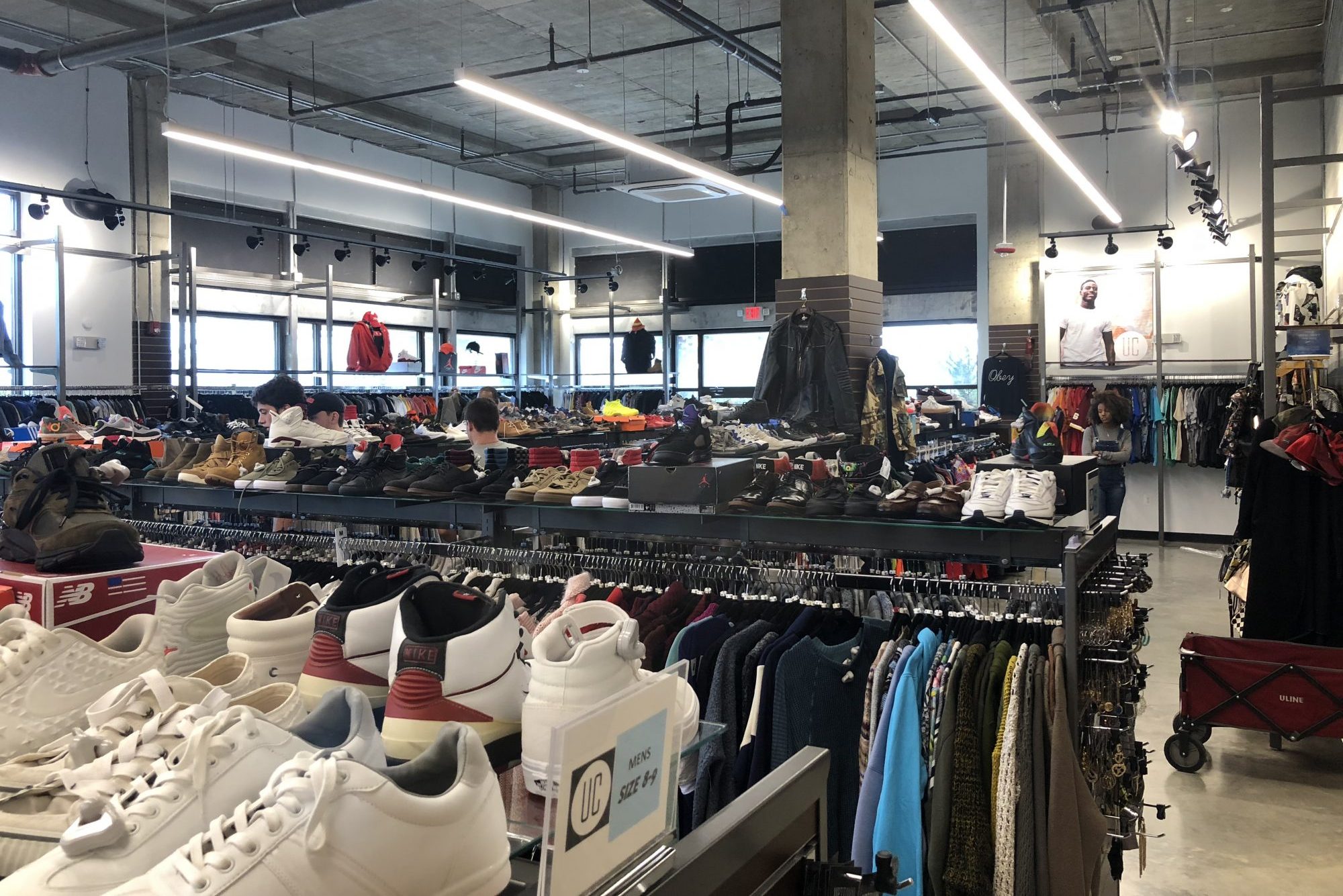Views expressed in opinion columns are the author’s own.
Thrifting and buying used clothes on consignment has gained popularity in recent years. Despite this “low-carbon” trend, the growth of fast fashion — which has made clothing a “nearly disposable” good — has not ceased. Each year, fast fashion makes up 10 percent of all global carbon emissions, and this number is projected to grow significantly in coming years. Additionally, people send millions of tons of textiles to landfills annually, and many will stay there for hundreds of years because clothing is increasingly made from synthetic materials that don’t decompose. College students ordering cheap garments from stores such as Forever 21 and Shein at extremely low prices only furthers the amount of clothing bought and added to landfills each year.
Uptown Cheapskate just opened in College Park, becoming the first consignment store in the city, and the closest of several used-clothing stores such as Value Village and Unique. For some students, having a consignment store close to campus could be their introduction to the used-clothing scene. This resell model is appealing for many reasons, including allowing students to make money from their old items, buying clothing for a lower price and providing a unique selection of items from the fast fashion trends everyone is wearing — and all with the added benefit of more ethical and sustainable consumerism. By buying used clothes, consumers aren’t directly supporting clothing manufacturing businesses, which contribute to environmental destruction and often exploit their workers.
Alternative Exchange, a pop-up thrift shop created by the same student leaders who ran the Maryland Food Co-op, is another innovative model for clothes sharing. It creates a model more community-oriented than Uptown Cheapskate, as students are able to swap old items for new ones and the prices are not increased to turn a large profit.
Having more options nearby, such as Uptown Cheapskate and Alternative Exchange — where students can sell, donate, or buy clothes from stores that their peers contribute to — may start to change how young people think about the life cycle of their wardrobes and may even change their relationships with shopping. The slow movement is a cultural change that takes the emphasis off growth and consumption, instead prioritizing buying only necessary goods ethically and sustainably. As we begin to change our economy to be less water-intensive, carbon-intensive and wasteful, we must address fast fashion as a key player in our collective overconsumption of resources. It’s a global phenomenon that needs serious attention, but we can start by applying slow movement values to our own community here in College Park, whether by sharing and upcycling clothes, swapping textbooks or handing down furniture at the end of each school year.
Stores such as Uptown Cheapskate can help divert textiles that may otherwise head to the landfill to new homes, but students can’t just thrift as a supplement to their otherwise over-consumptive diet. Buying new clothes and easing the guilt by donating them later is still contributing to the problem. We need a cultural shift away from fast fashion toward recycling and sharing what we already have.
Sonja Neve is a senior environmental science and policy major. She can be reached at sonjaneve55@gmail.com.
CORRECTION: Due to an editing error, a previous version of this story misspelled Rugged Wearhouse. Due to an editing error, a previous version of this story called Rugged Wearhouse a consignment store. It was a discount store but did not resell clothes. The story has been updated.



